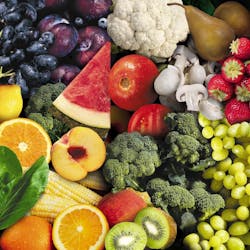Report: Food Safety Concerns Lower Fruit And Vegetable Consumption
The Alliance for Food and Farming issued a new report, “Scared Fat,” that illustrates how negative and misleading statements about the safety of fruits and vegetables is impacting consumption and undermining public health campaigns targeted toward improving diets and reducing obesity rates in the U.S.
The new report features results of recent consumer research as well as an analysis of that research by scientists with expertise in nutrition, consumer behavior and farming. Based upon the consumer research analysis, the experts reached five key conclusions:
- The consumer research clearly shows an emerging public health threat, and that although it may be unintentional, the impact of negative media reporting on food safety issues is not promoting the consumption of healthy fruits and vegetables.
- We have an obesity epidemic and current media and Internet reporting is increasing fears consumers have about eating fruits and vegetables and is lowering the faith people have in the government regulations implemented to protect them.
- It is inaccurate to suggest that organic is the only safe choice when it comes to selecting safe fruits and vegetables because there is no scientific consensus to substantiate this claim.
- Regrettably some well-intentioned media and Internet reports on food safety may create a situation where some consumers feel like they are making inferior choices when they buy conventionally grown fruits and vegetables rather than organic.
- The key message we need to continue to deliver is -- eat more fruits and vegetables.
The expert panel stated that among the most concerning consumer research findings is that almost 10 percent of low income consumers said that they would reduce consumption of fruits and vegetables after hearing negative safety messages from one activist group. Another nine percent of low income consumers stated they didn’t know what they should do.
“Despite continuous and repeated government campaign initiatives communicating about the need to eat more fruits and vegetables, this group’s messaging results in almost 20 percent of the low income population considering discounting those nutrition based initiatives and advice,” says Marilyn Dolan, executive director of the Alliance for Food and Farming in a prepared statement.
The entire “Scared Fat” report can be found at: www.safefruitsandveggies.com
